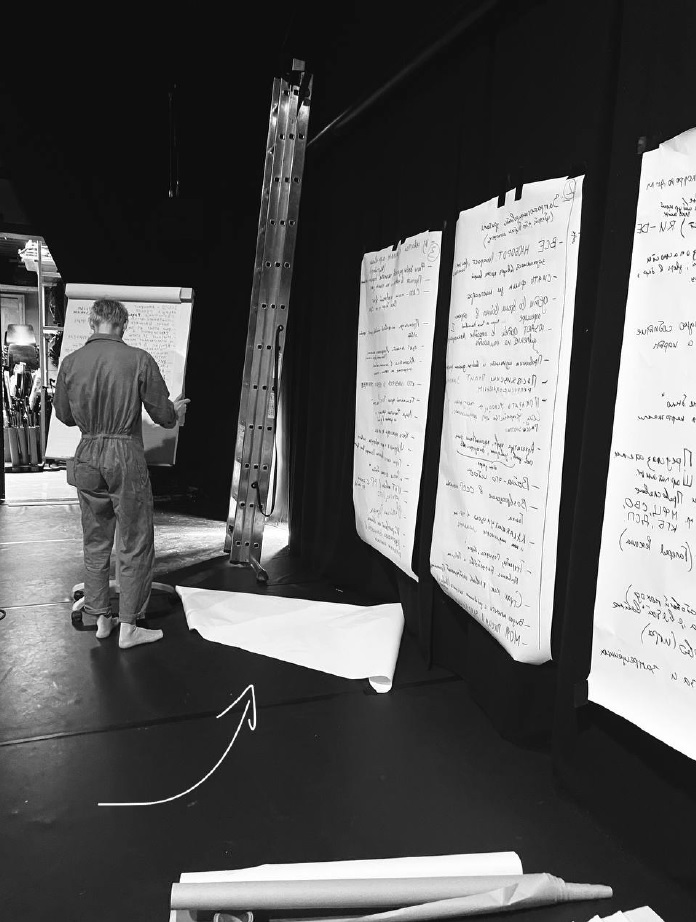
This is an excerpt from Logbook Week 2:
We continue our second week of study with a discussion of the material we have viewed on the political, social and economic landscape of the formation of the new state – Russia from 1991 to 1999. And we enter into the study of changes in all branches of Russia’s development and its recent history.

Finally, we turn to the study of the period of “Putin’s power”. In the materials we can already notice the figures who would later become Putin’s elite.
We felt how much this week with the immersion in the history of the 90s, this base from where all the origins of the new state of Russia and the way the Russian power developed has helped us a lot.
But there is a worry that we don’t have so much time to do only this – to observe our times.
We want to dig a little bit more, we need more findings:
This is something that torments us without an answer, this is something that we are passionate about finding, understanding and offering to the viewer during Making off so that it becomes a subject of exploration – together with the viewer to understand if the things we have found work. In our research, and the final day of research can also be a significant part of the research – to make sure that the viewer gives us some crucial answers.
Our found patterns:
Interesting observation.
I’ve been keeping a personal journal since the beginning of the study. This week I have been making notes in this lockbook. The guys began to wonder why I write so often, take notes. Myself I note a certain article to the notes, found thoughts, I like and I am actually fascinated by our research. That is why I am still writing down a lot this week.
We jokingly thought it looked like I was writing down every step of us and like I was compiling a denunciation. And we came up with the interesting idea that those who write denunciations in Russia today feel this power of power. After all, the system of denunciation exists in such a way that you write a denunciation about something that you feel you need to check. Executive power in the person of law enforcement agencies, police, FSB and others can really take action, repressive articles have appeared a large number and to bring this or that person, the person on whom you write a denunciation can be brought to the judicial system, to check. For example, in the new “theatrical case” of Zhenya Berkovich and Svetlana Petreichuk – Vladimir Karpuk, a talentless actor who graduated from the Film School of propagandist Nikita Mikhalkov clearly felt this power of denunciation, he was a witness at the trial in the new “theatrical case” and two weeks ago the court found Berkovich and Petreichuk guilty of propaganda of terrorism for the performance, in which the opposite idea.
Our notes on large sheets of paper we have a record by year, which we called “Archive of the 90s”. If necessary, we can always look there, check, compare facts and observations.
In our research, a lot of our personal experience informs our research. But we were still children and teenagers at that time. So we decided to involve our parents in the research. They lived at that time and we asked them what it was like for them then, how they see it now and how they see that time and the political situation in the country. This confirms our research materials and completes the picture of Russia at that time.
[…]
In the process of research, observations arise that can be attributed to conspiracy theories, but this topic seems interesting for additional vision of other versions of the description of the events of Russian history.
There are ideas for making off in terms of interactive interaction with the audience and possible ideas how to show how propaganda works through theater.
[…]
At home I continued writing poetry and we watched the movie Jojo Rabbit.
[…]
by Mikhail Poliakov